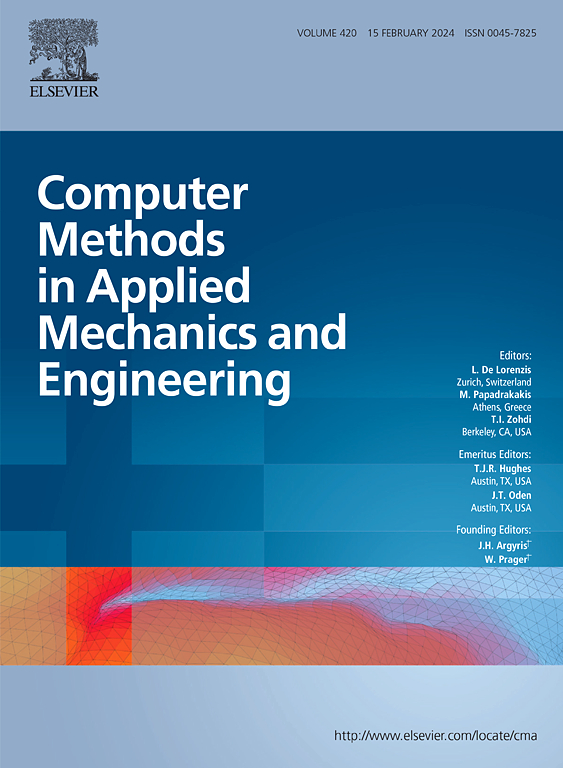Hybrid quantum genetic algorithm for structural damage identification
IF 6.9
1区 工程技术
Q1 ENGINEERING, MULTIDISCIPLINARY
Computer Methods in Applied Mechanics and Engineering
Pub Date : 2025-02-27
DOI:10.1016/j.cma.2025.117866
引用次数: 0
Abstract
Quantum computing, as an emerging technology, has experienced rapid development and attracted widespread attention across various disciplines over the past four decades. In the field of damage identification, as the demand for damage detection efficiency in real-world engineering continues to rise, the application of this fast computing technology also deserves attention. As a combination of genetic algorithm and quantum computing, the hybrid quantum genetic algorithm (HQGA) utilizes quantum superposition and entanglement to implement evolutionary optimization on quantum computers. Due to its flexibility in performing a global adaptive search without relying on the specific nature of the problem or the form of the objective function, the HQGA demonstrates the potential to solve complex optimization problems. In this paper, a mapping relationship is established between quantum bits and the stiffness reduction factors of elements, leading to the development of the HQGA for solving the damage identification problem based on measured strain responses. The performance of the proposed method is tested by damage identification for three distinct structures. The results show that the proposed method can enhance detection efficiency greatly while maintaining its effectiveness and stability.
求助全文
约1分钟内获得全文
求助全文
来源期刊
CiteScore
12.70
自引率
15.30%
发文量
719
审稿时长
44 days
期刊介绍:
Computer Methods in Applied Mechanics and Engineering stands as a cornerstone in the realm of computational science and engineering. With a history spanning over five decades, the journal has been a key platform for disseminating papers on advanced mathematical modeling and numerical solutions. Interdisciplinary in nature, these contributions encompass mechanics, mathematics, computer science, and various scientific disciplines. The journal welcomes a broad range of computational methods addressing the simulation, analysis, and design of complex physical problems, making it a vital resource for researchers in the field.

 求助内容:
求助内容: 应助结果提醒方式:
应助结果提醒方式:


